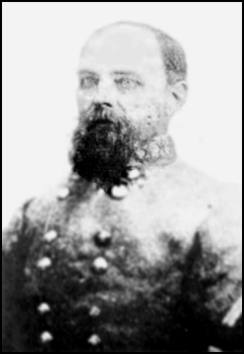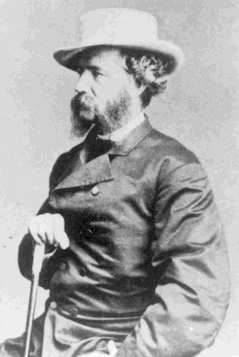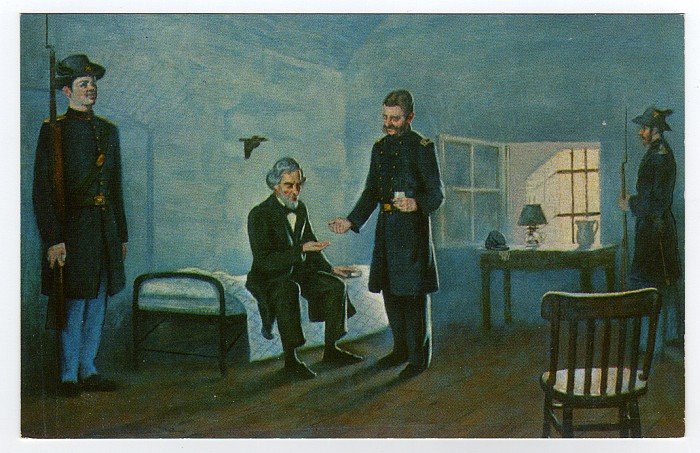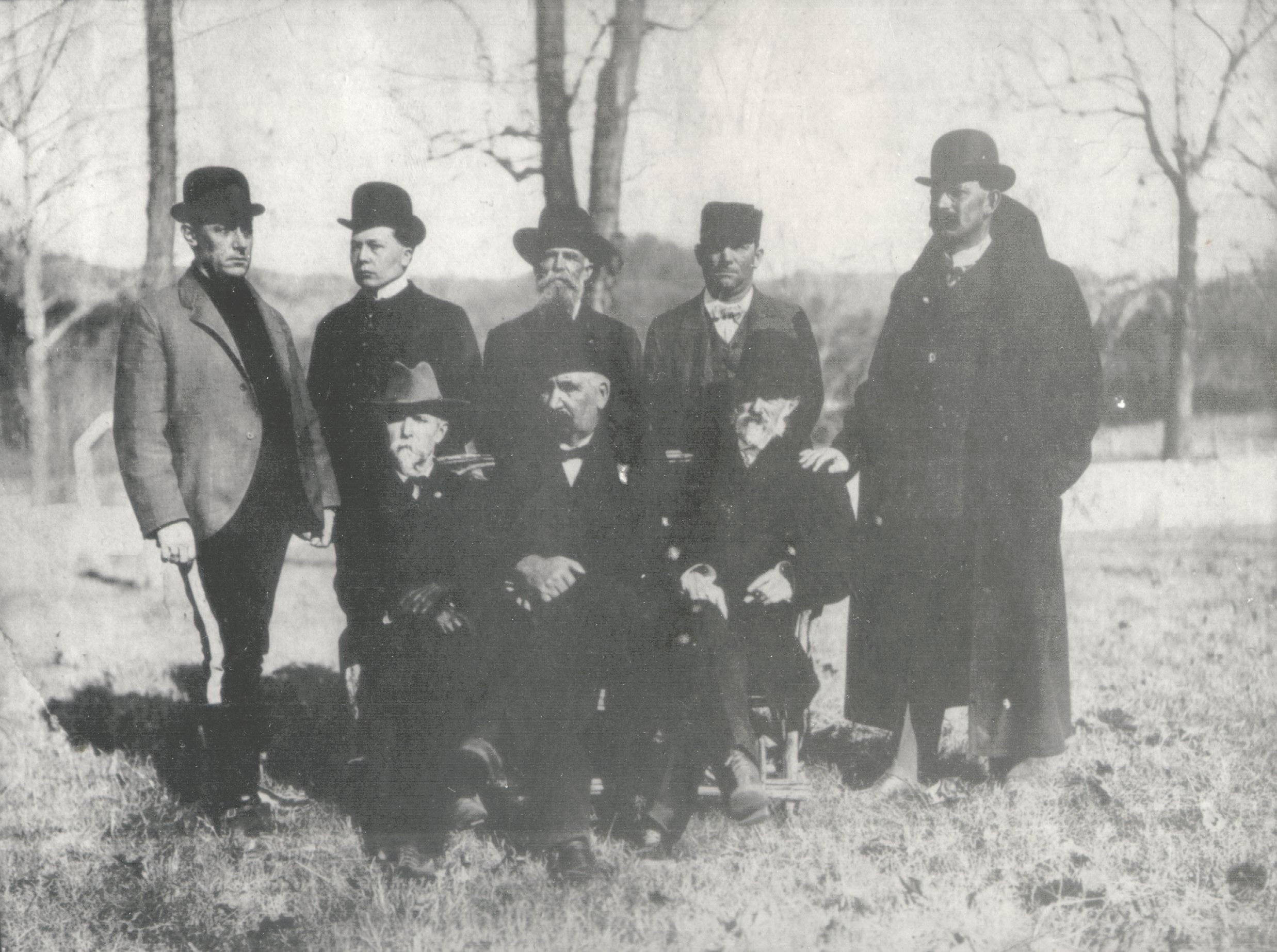From a Former Prisoner to Another: Brigadier General William Stephen Walker and the Roots of Reconciliation
Today, we are pleased to welcome back guest author Sean Michael Chick

A wonderful example of the kind of empathy that helped to make reconciliation possible was the capture of Brigadier General William Stephen Walker in 1864. Walker was born in Pittsburgh. He was raised by his uncle Robert J. Walker, one of the most powerful antebellum politicians. Although proslavery, Robert Walker secured foreign loans for the Union war effort; his son Duncan was a staff officer. William S. Walker used his family to get a commission in the elite 1st Voltiguers during the Mexican-American War. During the Civil War he served briefly on General Robert E. Lee’s staff and usually commanded troops near Pocotaligo, South Carolina, winning a small skirmish in 1862 and promotion from colonel to brigadier general. Walker’s first field command was a result of General P.G.T. Beauregard’s feud with Brigadier General Nathan “Shanks” Evans, commander of the “Tramp Brigade.” When an accident in April 1864 took Evans out of action, Beauregard replaced him with Walker. Within a few weeks Walker was bringing his men to Virginia to take part in the Bermuda Hundred Campaign.
Walker arrived on May 18, 1864 with four regiments totaling 1,500 men: the 17th, 18th, 22nd South Carolina, and 26th South Carolina. Unfortunately, Walker was without the 23rd South Carolina and Lucy Holcombe Legion. On May 20 Beauregard attacked the Union’s Bermuda Hundred lines of Major General Benjamin Butler near Ware Bottom Church. Beauregard wanted to force Butler back in order to hold a better defensive position. The center of the attack was made by Walker and Brigadier General Thomas Clingman’s North Carolina brigade.
Clingman attacked first, just to the left of Walker’s brigade. Walker then made an uncoordinated advance in the late morning. On the right the 17th and 22nd South Carolina drove into the lines, but this left a gap between the attacking forces. Colonel Joshua B. Howell led a counterattack with 6th Connecticut, 39th Illinois, 67th Ohio, and 85th Pennsylvania and elements of the 142nd New York. Clingman’s brigade fell back just as Walker put in the 18th and 26th South Carolina to cover the gap. At one point Captain John Floyd of the 18th South Carolina placed his hat on his sword and led a charge that drove the Union forces back nearly half a mile.
Walker accompanied the 22nd South Carolina during the attack. According to Lieutenant J. Warren Pursley of the 22nd South Carolina Walker was “patting the men on the shoulder, telling them to look quick.” Walker ordered the regiment to fall back while he went to draw up reinforcements. Lost in the underbrush and smoke, he wandered into the 67th Ohio. Walker tried to impersonate a Union officer, telling the Buckeyes “Hold your position firmly, boys, and I will ride back for reinforcements and we will drive these rebels to h-!” As he rode off he received a full volley. Walker’s horse was hit sixteen times and Walker was struck with three bullets. He was escorted to the rear by Lieutenant James Clark of the 115th New York. Wounded Union men jeered Walker, with one yelling “Kill the Rebel!” Despite Walker’s capture, the battle was a Confederate victory. Union losses were nearly 1,000, and Confederate losses were 600-800, mostly in Walker’s brigade.

Dr. John J. Craven, a surgeon with X Corps, was particularly depressed by the fighting. As he moved among the wounded he recalled feeling bitter and vengeful. He cursed the Rebels, particularly Beauregard. Yet, when he came upon the severely wounded Walker “all promptings of patriotic hatred vanished.” Walker meekly asked “Let me rest somewhere, and dictate some last words to my Wife and Commander.” Craven gave Walker brandy and sent him to Major General Quincy Gillmore’s headquarters at Hatcher’s House. That night Craven amputated Walker’s left leg. Craven was so moved he nearly cried. Walker survived but his first major field battle was his last.

In 1865 Craven served as physician to Jefferson Davis during his prison stay in Fort Monroe. Craven’s experience with Walker had softened his heart towards his former enemies, and he took pity on Davis, who was poorly treated (arguably extremely neglect amounting to abuse) during his confinement. Davis suffered from a litany of ailments: digestive trouble, erysipelas, headaches, neuralgia, an ulcerated cornea of the eye, dyspepsia, and what we would today recognize as depression. Craven attended to Davis successfully and mitigated his harsh imprisonment. In December 1865 Craven was dismissed, likely because he was too friendly with Davis. His 1866 book The Prison life of Jefferson Davis, led to increased sympathy for the defeated man and his eventual release. Davis was not tried for treason.

Thanks for the write up. My name is William Stephen Walker V and we (my daughter and I) just came across this article while doing her homework about her ancestors. I’ve read a number of things but not this one. My father WSW IV gave me his gun from the civil war. Thanks again.
What did General Walker do after the war?